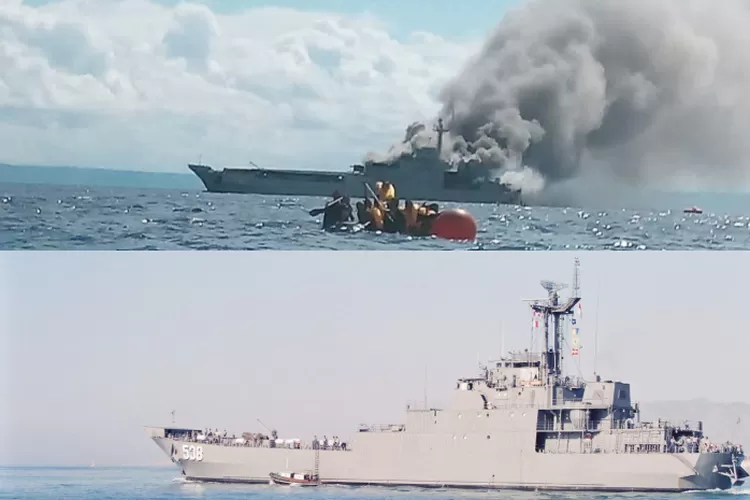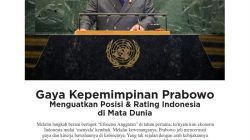Indonesiantalk.com — Khairul Fahmi, an expert from the Institute for Security and Strategic Studies (ISESS), has raised concerns about the recent fire incident on the KRI Teluk Hading-538, a warship that is part of the Indonesian Navy’s fleet.
Fahmi emphasizes the urgent need for the modernization of the Indonesian Navy’s main weapon systems (alutsista).
The occurrence of the fire on the KRI Teluk Hading-538 highlights the fact that despite its 45 years of service, the vessel was still operational.
This raises questions about why outdated alutsista are still being used. Fahmi points out that plans for alutsista modernization have been discussed since 2020, but there has been little significant progress.
In January 2022, Defense Minister Prabowo Subianto announced a plan to have 50 combat-ready warships in Indonesia within 24 months. However, doubts persist regarding the achievement of this target. While the construction of domestically made tank carriers and fast missile ships has been undertaken, it is still insufficient to meet the set target.
Fahmi acknowledges that realizing the alutsista development plan is not easy and requires considerable time and funding. The government needs to exercise wisdom in managing priorities, considering the limited available resources amid numerous pressing needs.
However, Fahmi highlights that the acquisition of flashy new motorcycles should not be considered more pressing than the modernization of warships. In recent years, the government has been focusing on securing Indonesian waters from various legal violations and crimes at sea. Therefore, the fire incident on the KRI Teluk Hading-538 will impact the operational readiness of the Indonesian Navy’s fleet and increase the workload on other aging vessels.
Fahmi argues that the government and the parliament (DPR) must seriously consider a more proportional budget allocation and adhere to the commitments and priorities already set. Without such measures, the aspiration to strengthen Indonesia’s identity as a maritime nation, as outlined in the Nawacita program, will remain hollow words.
As a suggestion to the Indonesian Navy, Fahmi recommends involving stakeholders and decision-makers in sailing together to face more challenging situations. This can help them understand that every day, valuable soldiers face life-threatening risks due to outdated alutsista.
In facing future challenges, the Indonesian Navy needs strong support from the government and the parliament to ensure adequate alutsista procurement, proper maintenance, and optimal security in Indonesian waters. Genuine cooperation and commitment are required to safeguard the strength of the Indonesian Navy’s fleet and maintain the sovereignty of Indonesia’s seas.








